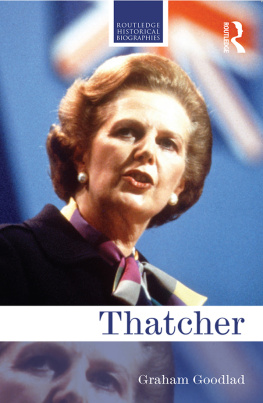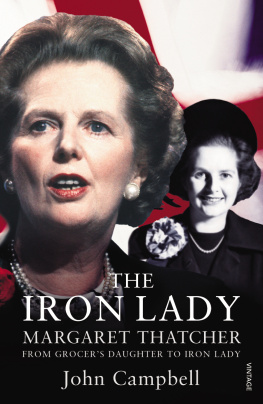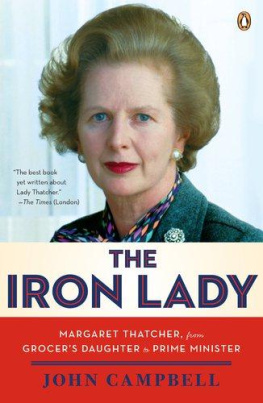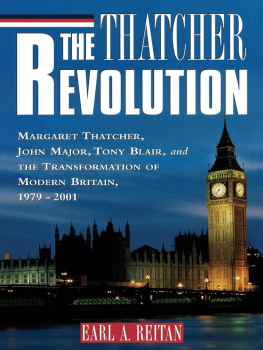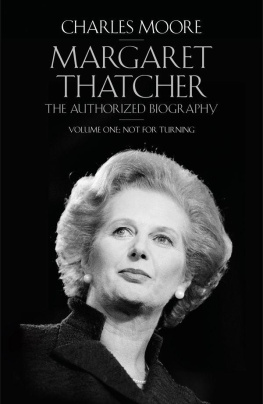My first distinct memory is of traffic. I was being pushed in a pram through the town to the park on a sunny day, and I must have encountered the bustle of Grantham on the way. The occasion stays in my mind as an exciting mixture of colour, vehicles, people and thunderous noise yet, perhaps paradoxically, the memory is a pleasant one. I must have liked this first conscious plunge into the outside world.
As for indistinct memories, most of us probably recall our earliest years as a sort of blur. Mine was an idyllic blur in which the sun was always shining through the leaves of the lime tree into our living room and someone my mother, my sister, one of the people working in the shop was always nearby to cuddle me or pacify me with a sweet. Family tradition has it that I was a very quiet baby, which my political opponents might have some difficulty in believing. But I had not been born into a quiet family.
Four generations of the Roberts family had been shoemakers in Northamptonshire, at that time a great centre of the shoe industry. My father, who had wanted to be a teacher, had to leave school at thirteen because the family could not afford for him to stay on. He went instead to work at Oundle, one of the better public (i.e. private) schools. Years later, when I was answering questions in the House of Commons, Eric Heffer, a left-wing Labour MP and regular sparring partner of mine, tried to pull working-class rank by mentioning that his father had been a carpenter at Oundle. He was floored when I was able to retort that mine had worked in the tuck shop there.
My father had a number of jobs, I think most of them in the grocery trade, until in 1913 he was offered the post of manager of a grocery store in Grantham. In later years he would say that of the fourteen shillings a week he received, twelve shillings paid for his board and lodging, one shilling he saved, and only then did he spend the remaining shilling. The First World War broke out a year later. My father, a deeply patriotic man, tried to enlist in the army no fewer than six times, but was rejected on each occasion on medical grounds. His younger brother, Edward, did enlist, and died on active service in Salonika in 1917. Few British families escaped such a bereavement, and Remembrance Day after the war was observed throughout the country both strictly and intensely.
Four years after arriving in Grantham my father met my mother, Beatrice Ethel Stephenson, through the local Methodist church. She had her own business as a dressmaker. They were married in that church in May 1917 and my sister, Muriel, was born in 1921.
My mother was quite a saver too, and by 1919 they were able to take out a mortgage to buy their own shop in North Parade. Our home was over this shop. In 1923 my father opened a second shop in Huntingtower Road opposite the primary school which I would later attend. On 13 October 1925 I was born over the shop at North Parade.
That same year, my father expanded his business further, taking in two adjoining buildings in North Parade. Our shop and house were situated at a busy crossroads and the main railway line Grantham was an important junction was just a hundred yards away. We could set our clocks by the Flying Scotsman as it thundered through. What I most regretted was that at this time we could not have a garden. Not until the end of the Second World War did my father buy a house with a long garden further along North Parade, on which the family had set our hearts some years previously.
Life over the shop is much more than a phrase. It is something which those who have lived it know to be quite distinctive. For one thing, you are always on duty. People would knock on the door at almost any hour of the night or weekend if they ran out of bacon, sugar, butter or eggs. Everyone knew that we lived by serving the customer; it was pointless to complain and so nobody did. These orders were, of course, on top of the regular ones. My father or his staff we had three staff at North Parade and someone else at Huntingtower would generally go out and collect these. But sometimes my mother would do so, and then she might take Muriel and me along too. My sister and I knew a lot of people in the town as a result.
There was, of course, no question of closing down the shop for long family holidays. We used to go to the local seaside resort, Skegness. But my father and mother had to take their holidays at different times, with my father taking a week off every year to play his favourite game, competing in the bowls tournament at Skegness. Living over the shop, children see far more of their parents than in most other walks of life. I saw my father at breakfast, lunch, high tea and supper. We had much more time to talk than some other families, for which I have always been grateful.
My father was a specialist grocer. He always aimed to supply the best-quality produce, and the shop itself suggested this. Behind the counter there were three rows of splendid mahogany spice drawers with sparkling brass handles, and on top of these stood large, black, lacquered tea canisters. One of the tasks I sometimes shared was the weighing out of tea, sugar and biscuits from the sacks and boxes in which they arrived into Ilb and 2lb bags. In a cool back room we called the old bake house hung sides of bacon which had to be boned and cut up for slicing. Wonderful aromas of spices, coffee and smoked hams would waft through the house.
I was born into a home which was practical, serious and intensely religious. My father and mother were both staunch Methodists; indeed, my father was much in demand as a lay preacher in and around Grantham. He was a powerful preacher whose sermons contained a good deal of intellectual substance. But he was taken aback one day when I asked him why he put on a sermon voice on these occasions. I dont think he realized that he did this. It was an unconscious homage to the biblical message, and quite different to the more prosaic tones in which he despatched council business and current affairs.


